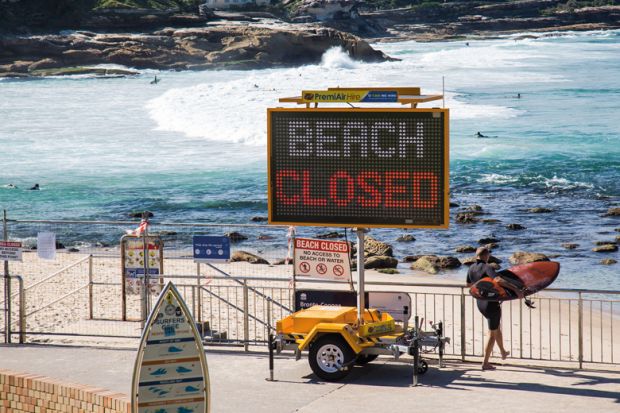“Lawfully enrolled” overseas students could be turned away from Australian universities and colleges, it is feared, with educational administrators shouldering the blame for complying with 11th-hour international student caps.
Shadow education minister Sarah Henderson said the legislation to authorise the caps would be “effectively operating retrospectively”. She told a Senate Estimates Committee hearing that students recruited in accordance with the prevailing law could be denied places after arriving in Australia if the bill to impose caps from 1 January received parliamentary approval.
Department of Education deputy secretary Ben Rimmer disputed the “retrospectivity” claim. “All providers who are close to the limit…are well aware of the fact,” he told the hearing.
Mr Rimmer said that if the legislation passed in its current form, the caps would apply only to overseas students starting courses next year. “It will take the provider some months to get anywhere near their limit, unless there’s a particular provider [where] all the students start on 1 January.”
Insiders said this explanation ignored the “practicalities” of international student recruitment, which takes months. Specialist arts and design college LCI Melbourne, which faces a limit of 10 international admissions next year, said significantly more foreign students had already been “in the pipeline” before the caps were announced.
“These are people we’ve recruited in good faith,” said college dean Stephen Wigley. “They’re in the visa system. They’re in the enrolment system.”
First assistant secretary Karen Sandercock said the Department of Education was “absolutely aware” of the issue. “We’re in discussion with providers to help make sure that…they are looking at their planned 2025 commencements against their indicative allocation,” she told the Australian International Education Conference. “That’s really important from Australia’s reputation point of view.”
The legislation was listed for debate in the Senate, where the Labor government does not have a majority, during the year’s final parliamentary sitting between 18 and 28 November. While the opposition Liberal Party wants international student numbers capped, it has not said whether it will support the bill.
Ms Henderson said she was particularly concerned about the proposal’s impacts on private colleges. “Many of them are facing insolvency, bankruptcy, collapse, serious financial consequences, the loss of their homes,” she told senators.
Some institutions have suspended their international student recruitment pending the debate. The Australian Catholic University told agents in September that it had already reached its indicative 2025 cap and would no longer offer places to overseas students, except those exempted from the caps.
UNSW Sydney was putting new overseas applicants on an “offer wait list” and has warned that it might not be able to provide places that students have already accepted. “We are unable to guarantee a place to current offer holders,” its website says. “UNSW Sydney does not know if, or when, this legislation will be approved.”
Consultant and former regulator Claire Field said it was “highly unlikely” that people would come all the way to Australia only to be turned away by their institutions. She said that with students typically travelling in February, most would have been warned by then if they could not be accommodated.
But many would already have forked over thousands of dollars in visa and agent fees. Ms Field said some universities were compensating students for these expenses, but a lot of institutions could not do that because they were “under enormous financial stress”.
Register to continue
Why register?
- Registration is free and only takes a moment
- Once registered, you can read 3 articles a month
- Sign up for our newsletter
Subscribe
Or subscribe for unlimited access to:
- Unlimited access to news, views, insights & reviews
- Digital editions
- Digital access to THE’s university and college rankings analysis
Already registered or a current subscriber?










